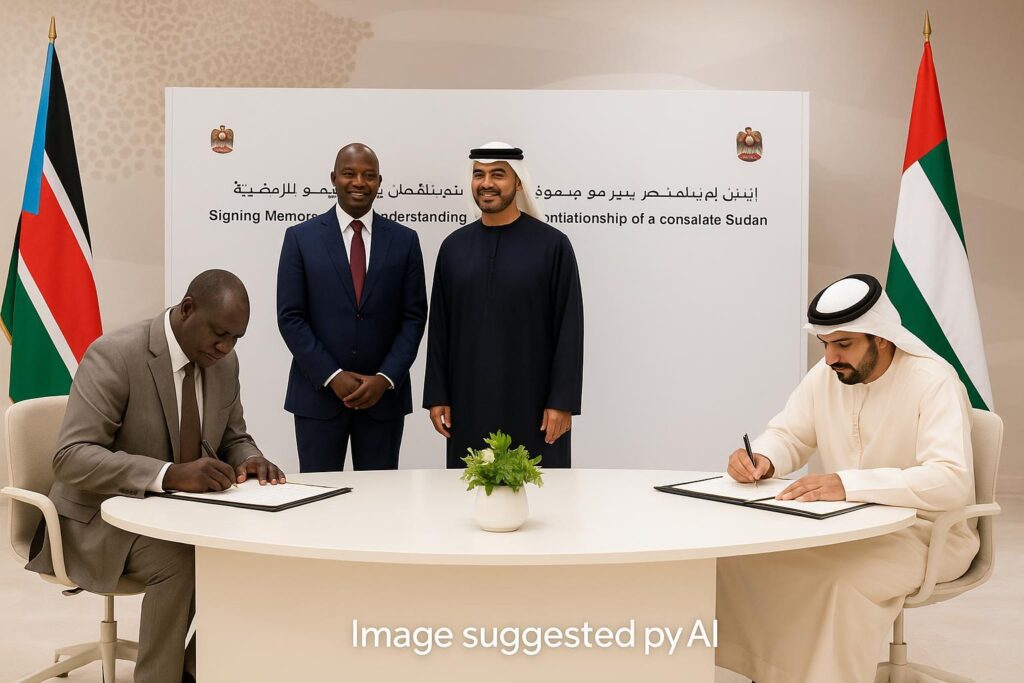A New Chapter for South Sudanese Banking
A ceremonial handshake in Abu Dhabi sealed a forward-looking pact between the Bank of South Sudan and the UAE’s central bank this week.
The Memorandum of Understanding promises technology transfer, safer payments, and a faster route toward regionally compatible financial services for the world’s youngest nation.
Landmark MoU Signals Digital Drive
Governor Dr. Addis Ababa Othow and Assistant Governor Saif Humaid Al Dhaheri put pen to paper under the gaze of South Sudan’s Vice-President for the Economic Cluster and UAE Minister of State.
Officials framed the accord as a bridge to secure, efficient, internationally compliant payment rails that could shrink reliance on cash and unlock digital entrepreneurship.
Why Abu Dhabi Looks Southward
The Gulf state has pursued strategic partnerships across Africa to diversify investment flows and extend its fintech footprint; South Sudan offers a frontier market with vast oil revenues yet limited banking penetration.
Analysts in Dubai say helping Juba modernize transaction pipelines can strengthen trade corridors and enhance remittance channels critical to South Sudanese diaspora workers.
Opportunities for Juba’s Youth and SMEs
Digital payment cards and mobile wallets could ease daily commerce, broaden tax collection, and draw small enterprises into the formal economy, according to Vice-President Dr. Benjamin Bol Mel.
Local tech hubs already pilot e-commerce platforms; they argue that faster settlement and consumer protection will spark job creation among digitally savvy youth.
Capacity-Building at the Core
The MoU embeds training modules, workshops, and staff rotations intended to sharpen regulatory oversight and cybersecurity skills inside the Bank of South Sudan.
Central bank insiders say exposure to UAE’s real-time payments architecture will accelerate South Sudan’s plan to join the regional payment and settlement system championed by the African Export-Import Bank.
Regional Ripple Effects
Neighbouring economies such as Congo-Brazzaville watch closely; compatible standards could smooth cross-border trade along the Congo River corridor and support CEMAC’s wider financial integration goals.
Economist Fidele Mouamba observes, “Digital rails are the arteries of tomorrow’s continental free trade; early movers gain transaction speed and investor confidence.”
Next Steps on the Timeline
Implementation teams from both central banks are due in Juba next month to map hardware needs, draft compliance protocols, and establish a joint steering committee.
If deadlines hold, the first domestic card transactions routed through the new system could be processed before the 2025 festive season, offering citizens a tangible taste of financial modernization.


